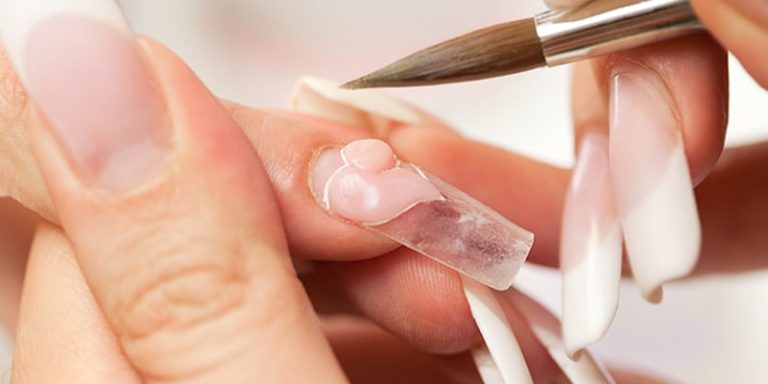The nail technician industry has grown significantly in recent years, attracting individuals with a passion for creativity, meticulousness, and the desire to provide top-notch nail care services. As aspiring nail technicians embark on their journey into this dynamic field, numerous questions arise regarding training, qualifications, career prospects, and industry trends. In this article, I delve into the most commonly asked questions about the nail technician industry to provide aspiring professionals with essential insights and guidance.
From the qualifications needed to become a nail technician to the expected earnings and the latest trends in nail art, I aim to shed light on the key aspects of this industry. Whether you’re considering a career switch or just starting to explore the world of nail care, this article aims to address your burning questions, dispel misconceptions, and offer valuable information to help you navigate the exciting realm of nail technology.
So, let’s dive in and explore the captivating world of nail technology, where creativity, skill, and dedication come together to transform hands into beautiful canvases of self-expression.
How much does a nail tech make a month UK?
The income of a nail technician in the UK can vary based on several factors, including location, level of experience, skill set, and client base. Additionally, whether you work as an employee in a salon or as a self-employed nail technician can also impact your earnings. It’s important to note that the figures provided are approximate and can vary significantly.
As a guideline, here’s a general overview of the earnings of a nail technician in the UK:
- Employee in a Salon: As an entry-level nail technician working as an employee in a salon, you can expect to earn around £1,200 to £1,800 per month. With experience and a growing client base, your earnings can potentially increase over time.
- Self-Employed Nail Technician: If you choose to work as a self-employed nail technician, your earnings can vary greatly depending on factors such as location, the number of clients, pricing structure, and reputation. On average, self-employed nail technicians in the UK can earn between £1,500 to £3,000 per month. However, it’s important to consider expenses such as rent for salon space, purchase of products and equipment, marketing, and insurance.
- High-End Salons or Specialised Services: Working in high-end salons or offering specialised services such as nail art or nail extensions can increase your earning potential. In these cases, monthly earnings can range from £2,000 to £5,000 or more, depending on the demand and clientele.
Please note that these figures are estimates and can vary based on individual circumstances, the region within the UK, and specific market conditions. It’s always recommended to conduct thorough research and consult with industry professionals to better understand the earning potential in your desired area of work.
What qualifications do I need to do nails in the UK?
In the UK, the qualifications and certifications required to work as a nail technician can vary based on the specific region within the UK. However, here are some general qualifications commonly sought after:
- Nail Technician Training: Completing a recognised nail technician training program is essential. Look for courses that are accredited by reputable organisations such as VTCT (Vocational Training Charitable Trust), City & Guilds, or Habia (Hairdressing and Beauty Industry Authority). These courses typically cover a range of skills including manicures, pedicures, nail enhancements, nail art, and health and safety practices.
- NVQ/SVQ Qualification: NVQ (National Vocational Qualification) or SVQ (Scottish Vocational Qualification) Level 2 or 3 in Nail Services is a widely recognised qualification in the UK. These qualifications demonstrate competence in providing nail services and can enhance your career prospects. They are awarded upon successful completion of a relevant training program and assessment.
- Health and Safety Certification: Qualifying health and safety is crucial to ensure a safe working environment for yourself and your clients. Courses such as the HABIA Health and Safety Certificate or similarly recognised certifications can provide the necessary knowledge in sanitation, sterilisation, and proper handling of products.
- Public Liability Insurance: It is recommended to have public liability insurance as a nail technician. While it is not a formal qualification, it provides financial protection in case of any accidents or claims related to your services.
Additionally, it’s important to check with your local council or regulatory bodies in your specific area within the UK for any additional requirements or regulations. They will provide accurate and up-to-date information regarding the qualifications, licensing, and registration necessary to work as a nail technician in your region.
How do I become a self-employed nail technician?
Becoming a self-employed nail technician involves several steps and considerations. Here’s a general guide on how to embark on this path:
- Obtain the Necessary Qualifications: Start by completing a recognised nail technician training program or courses that cover the essential skills and techniques needed for nail care. Look for accredited programs offered by reputable institutions, this accreditation is an essential part of securing insurance to work on the paying public. Acquiring qualifications, such as an NVQ or SVQ in Nail Services, can add credibility to your profile.
- Gain Experience and Refine Your Skills: After completing your training, gain practical experience by working in a salon or spa. This will allow you to further develop your skills, build a portfolio of your work, and understand the intricacies of the industry.
- Research Local Laws and Regulations: Familiarise yourself with the legal requirements for self-employment in the nail technician industry in your area. Check with your local council or regulatory bodies to understand licensing, registration, and health and safety regulations that may apply. Complying with these regulations is crucial for establishing a legitimate and professional business.
- Set Up Your Business: Determine the structure of your business, such as whether you want to operate as a sole proprietor or establish a limited company. Register your business with the appropriate authorities and obtain any necessary licenses or permits.
- Acquire Essential Supplies and Equipment: Purchase high-quality nail care products, tools, and equipment necessary for your services. This may include nail polishes, gels, acrylics, files, buffers, UV lamps, and other salon essentials. Ensure that you invest in products that meet industry standards and prioritise the health and safety of your clients.
- Establish Your Pricing and Services: Research the local market to understand the prevailing rates for nail services in your area. Consider factors such as your experience level, specialisation, location, and the quality of your services when setting your prices. Determine the range of services you will offer, whether it’s basic manicures and pedicures, nail enhancements, nail art, or specialised treatments.
- Build a Client Base: Market your services to attract clients. Create an online presence through a professional website or social media platforms. Utilise social media marketing, word-of-mouth referrals, and networking within the beauty and wellness industry to spread the word about your business. Provide exceptional customer service and ensure a positive client experience to build a loyal customer base.
- Stay Updated and Evolve: Continuously enhance your skills and knowledge by attending workshops, industry events, and training programs. Keep up with the latest nail trends, techniques, and products to offer innovative and in-demand services to your clients.
Remember, becoming a successful self-employed nail technician requires dedication, hard work, and a commitment to continuous learning. With the right qualifications, experience, and a solid business strategy, you can carve out a rewarding and thriving career as a self-employed nail technician.
✨ Take the Next Step Today!
Ready to transform your passion into a profession?
Dive into a certified online beauty course and transform your love for beauty into real skills.
Turn you love of nails into a money making business with one of our outstanding online nail courses.
Enjoy alternative therapies why not become a massage therapist start a massage course today or any of our online therapy courses.
Whether you dream of becoming a pro or just want to master your own routine, the path starts now.
✨ Join Next Step Beauty today and explore your potential with any or our top-tier online training courses.
👉 Enroll Now | 💬 Contact Us | 📸 Follow@NextStepBeauty












